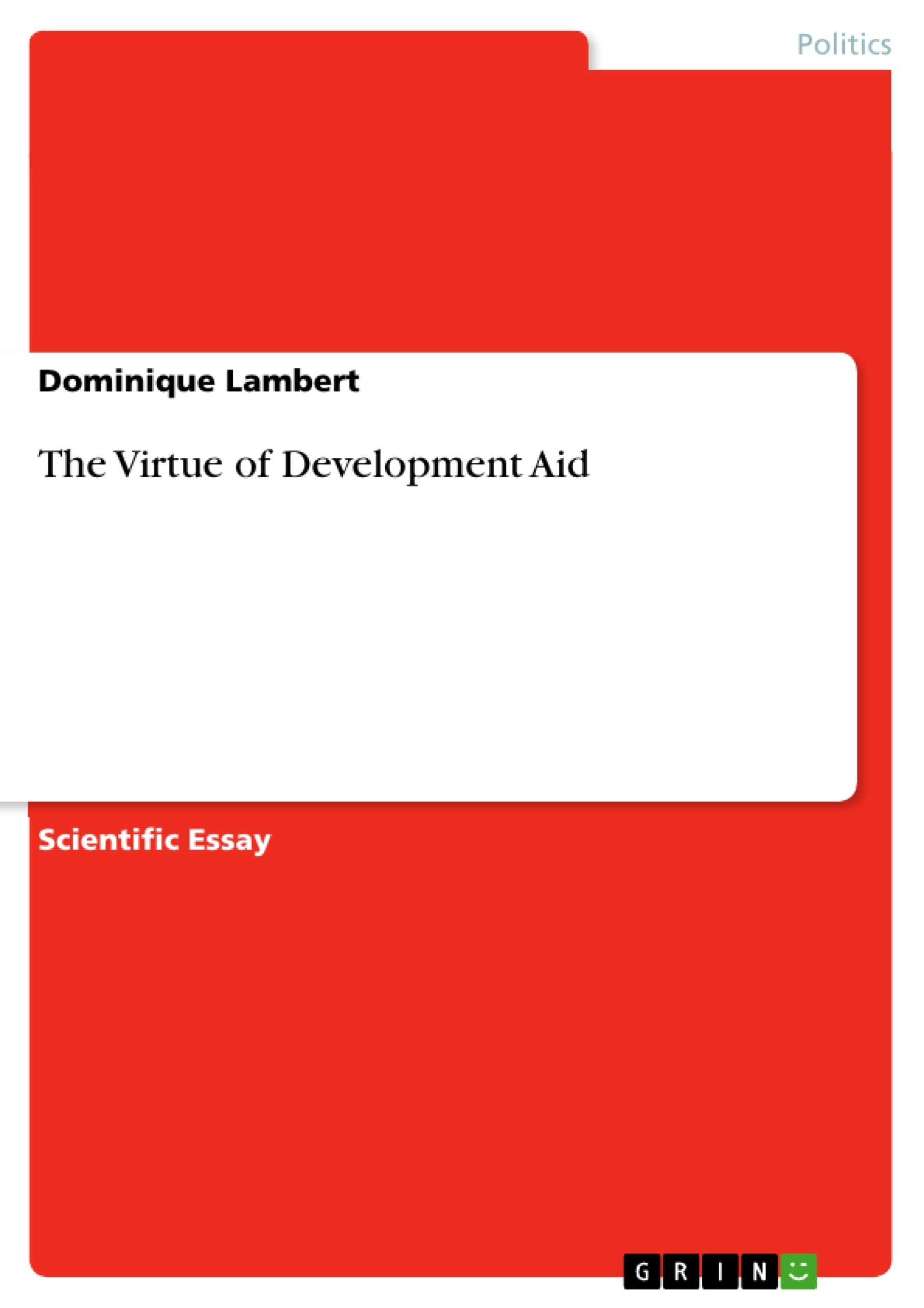Regarding development aid, there are several ways which have been discussed and conducted in recent years. This short paper gives a short overview over some of the most important strategies and ideas.
Inhaltsverzeichnis (Table of Contents)
- The Aid Debate
- What is "Aid"?
- Two Major Areas: Humanitarian and Development Aid
- Aid and NGO's
- Key Players
- Jeffrey Sachs
- William Easterly
- Muhammad Yunus
- Dambisa Moyo
- The Arguments
- Aid and Dependency
- The Role of Entrepreneurship
- Aid and Self-Sustainability
Zielsetzung und Themenschwerpunkte (Objectives and Key Themes)
This paper explores the multifaceted debate surrounding aid, examining the contrasting perspectives of prominent figures like Jeffrey Sachs, Muhammad Yunus, Dambisa Moyo, and William Easterly. It delves into the definition and types of aid, highlighting the complexities and challenges involved in its effective implementation. The paper also analyzes the arguments for and against aid, scrutinizing the potential benefits and drawbacks of various approaches.
- The definition and types of aid
- The role of aid in development
- The effectiveness of aid programs
- The potential for aid to create dependency
- The importance of entrepreneurship and self-sustainability
Zusammenfassung der Kapitel (Chapter Summaries)
The first chapter delves into the complexities of defining "aid," exploring its various forms, including development aid, humanitarian aid, and private donations. It also examines the different conditions under which aid is implemented and the potential for political or economic self-interests to influence its distribution. The second chapter focuses on the two main areas of aid: humanitarian and development aid. It discusses the challenges and criticisms surrounding humanitarian aid, using the example of the NGO engagement in Haiti. It also examines the significant financial impact of development aid, outlining the global spending on foreign aid by various countries.
The third chapter introduces the key players in the aid debate, starting with Jeffrey Sachs, a prominent advocate for aid. It outlines his "Big Five" areas where aid is crucial and his arguments for increased aid to solve poverty. The fourth chapter presents the opposing views of William Easterly, who argues that aid has been ineffective and even harmful. He criticizes the top-down approach to aid and advocates for a bottom-up, entrepreneurial approach. This chapter also introduces Muhammad Yunus and his concept of social business, which emphasizes empowering people through microcredit and creating businesses to address social issues.
The fifth chapter focuses on the arguments surrounding aid and dependency. Dambisa Moyo, another critic of aid, argues that it has fostered dependency and perpetuated poverty. She advocates for an entrepreneurial approach and emphasizes the importance of accountability and self-reliance. The final chapter discusses the need for a nuanced approach to aid, recognizing that some types of aid can be effective while others may be counterproductive. It emphasizes the importance of empowering people, promoting entrepreneurship, and ensuring that aid is project-based, measurable, and time-limited.
Schlüsselwörter (Keywords)
The key themes and concepts explored in this paper include development aid, humanitarian aid, aid effectiveness, dependency, entrepreneurship, self-sustainability, microcredit, social business, and the role of NGOs in development. The paper examines the various arguments for and against aid, focusing on the perspectives of prominent figures like Jeffrey Sachs, William Easterly, Muhammad Yunus, and Dambisa Moyo. It also highlights the importance of transparency, accountability, and measurable results in aid programs.
Frequently Asked Questions
What is the difference between humanitarian and development aid?
Humanitarian aid focuses on short-term emergency relief, while development aid aims for long-term economic and social progress.
Who are the main critics of traditional development aid?
Prominent critics include William Easterly, who advocates for bottom-up approaches, and Dambisa Moyo, who argues that aid creates dependency.
What is Jeffrey Sachs' position on aid?
Sachs is a strong advocate for increased aid, focusing on "Big Five" areas such as agriculture and health to solve global poverty.
How does Muhammad Yunus contribute to the development debate?
Yunus introduced the concept of microcredit and social business, empowering individuals to solve social problems through entrepreneurship.
Does aid lead to dependency?
Many scholars, including Dambisa Moyo, argue that long-term aid can foster dependency and hinder self-sustainable economic growth.
- Citation du texte
- Dominique Lambert (Auteur), 2011, The Virtue of Development Aid, Munich, GRIN Verlag, https://www.grin.com/document/300786



